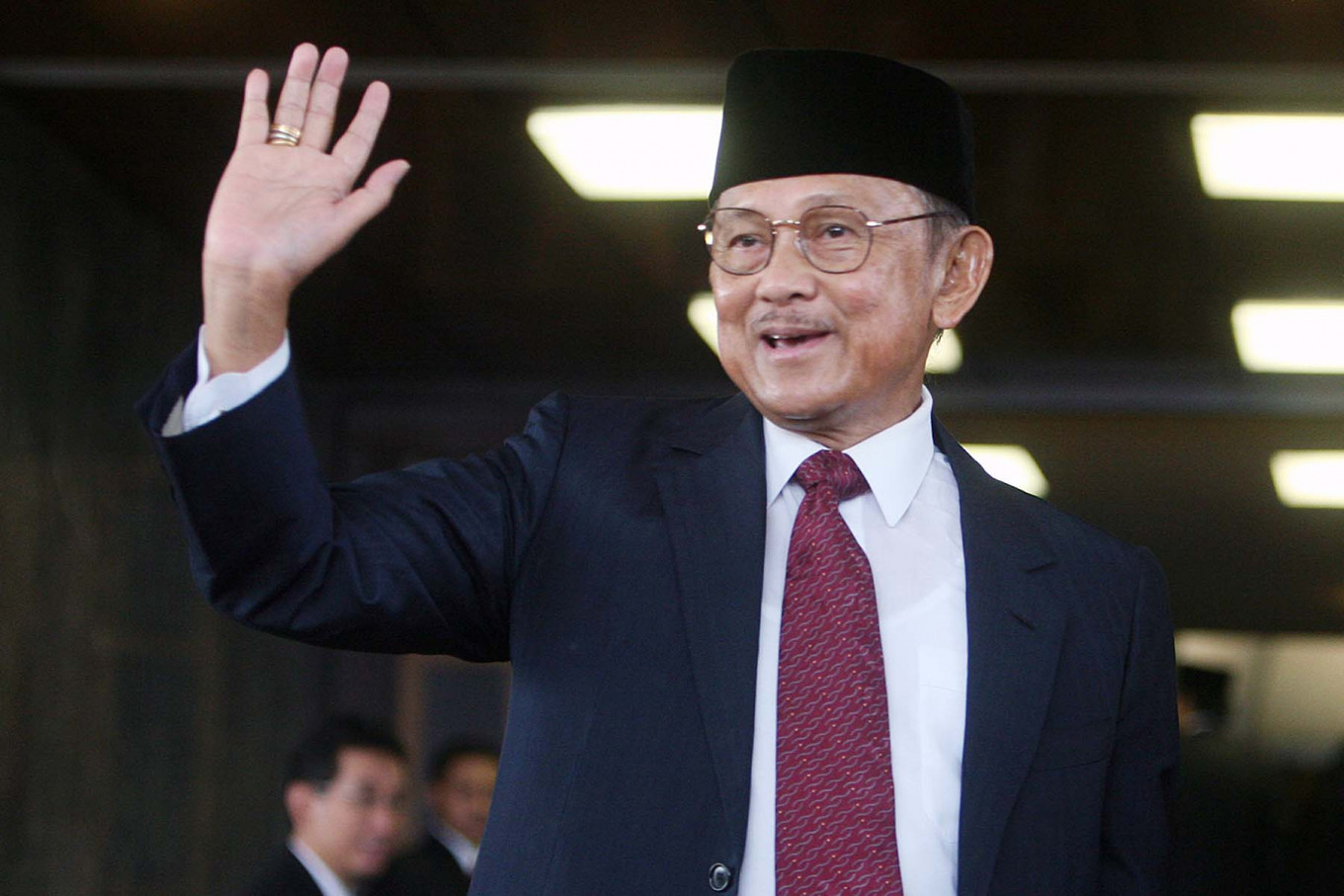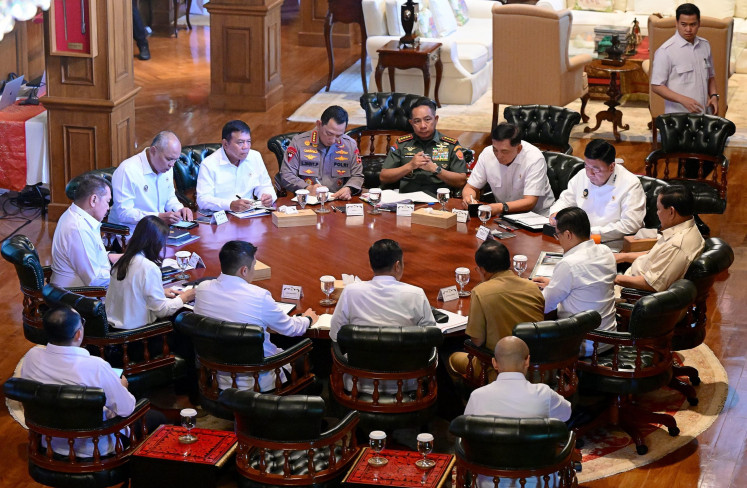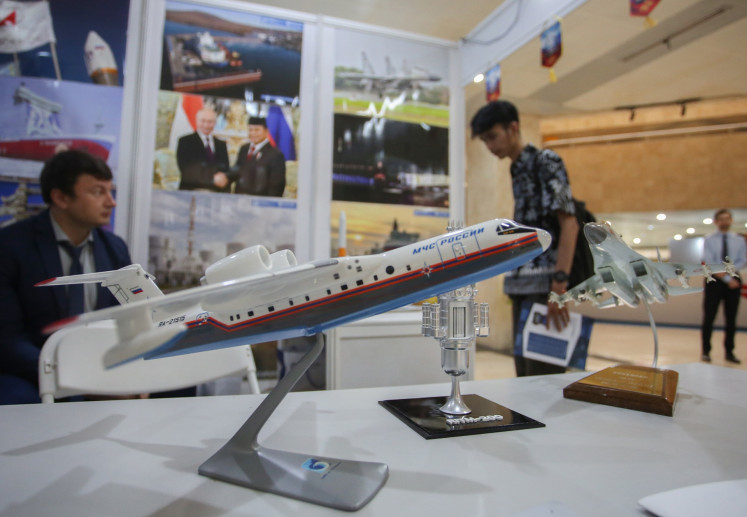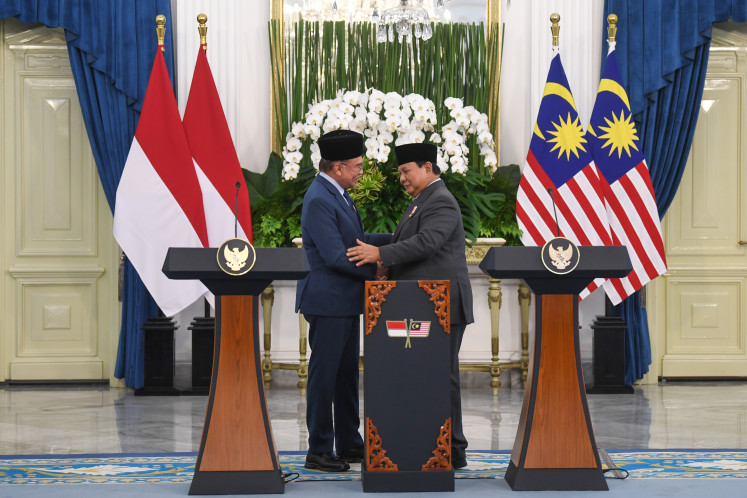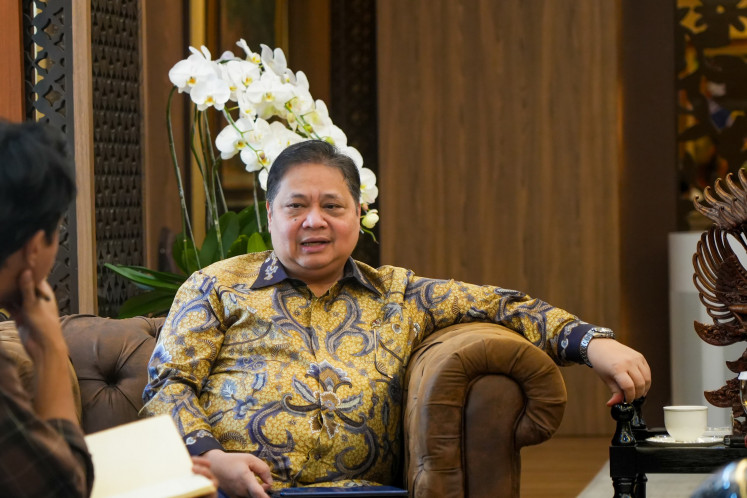Popular Reads
Top Results
Can't find what you're looking for?
View all search resultsPopular Reads
Top Results
Can't find what you're looking for?
View all search resultsGoodbye, Rudi
Change text size
Gift Premium Articles
to Anyone
A
man of solution. That’s how people close to him describe Bacharuddin Jusuf Habibie, Indonesia’s third president, who passed away at 83 years of age just after dusk on Wednesday.
Many may disagree, but in his testimony President Joko “Jokowi” Widodo had no qualms about what made Habibie a class apart and therefore deserves respect from the nation. “He used to immediately offer a solution […] to any problem facing the country, whether in the field of economy or other national issues. For this he sometimes came to the palace,” Jokowi said at the Gatot Soebroto Army Hospital, where Habibie had been receiving intensive care after his health suddenly deteriorated early this month.
Habibie briefly served as president following the resignation of his mentor Soeharto in May 1998. But it was during his 17-month tenure that Indonesia began a remarkable, albeit painful, transformation. Many would associate him with Soeharto’s New Order, typified by state control of its citizens, but Habibie would be mostly remembered as a man who laid the foundation of Indonesia’s democracy: He restored press freedom, released political prisoners and helped change the political system that facilitated the first democratic election Indonesia had held since 1955.
During his short-lived administration, several laws were passed to strengthen democracy and good governance, including the Monopoly Law, the Regional Autonomy Law and the Consumer Protection Law.
Indeed, he had no choice but to bow to mounting demands for change, but now we cannot imagine Indonesia without him at that crunch time. As a scientist, he was trained to think and act in a rational manner.
The world would recognize him not only as among the Asian leaders who fought the adverse impacts of a financial crisis sweeping the region in the late 1990s, but also as a key figure behind the separation of East Timor from Indonesia’s rule of 24 years. Habibie, also known as Rudi, offered a self-determination referendum to the then-Indonesian province, which eventually opted for independence in 1999. Timor Leste’s government has recently named a bridge after him to acknowledge his contribution to its freedom from oppression.
It is just ironic that despite his solutions that were unthinkable to most Indonesians who were transiting from an authoritarian regime to democracy, Habibie had his chance to win a full five-year term denied not only by the “pro-democracy” political elite, but also by his own Golkar party. The powerful People’s Consultative Assembly rejected his accountability speech, prompting him to drop his bid to contest the election — a democratic practice which has unfortunately remained unpopular in the country.
Perhaps history has defined the German-educated engineer as a figure who will be recognized more for his work and thoughts than the power he wielded. The quantum leap he prepared for Indonesia did not materialize due to the financial and political crises battering the country over 20 years ago, but his vision of an industrialized, hi-tech savvy nation would never die despite his demise.
As we mourn for this great loss, we are grateful to have had this great man.

